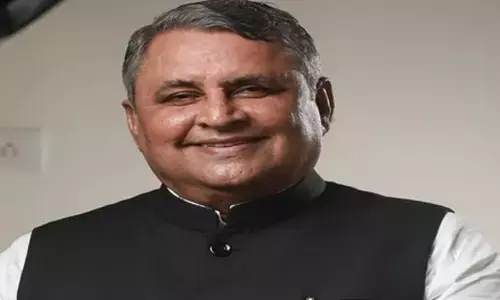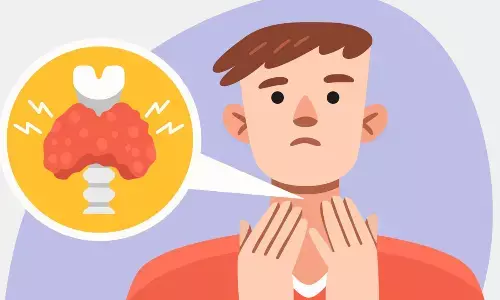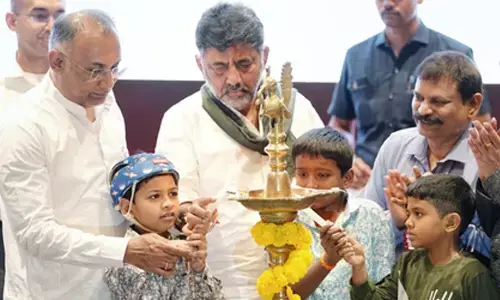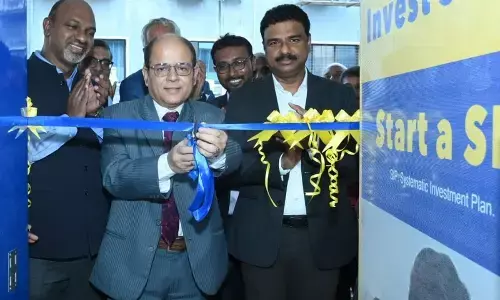Hyderabad: City likely to experience 40-41 deg C for a week
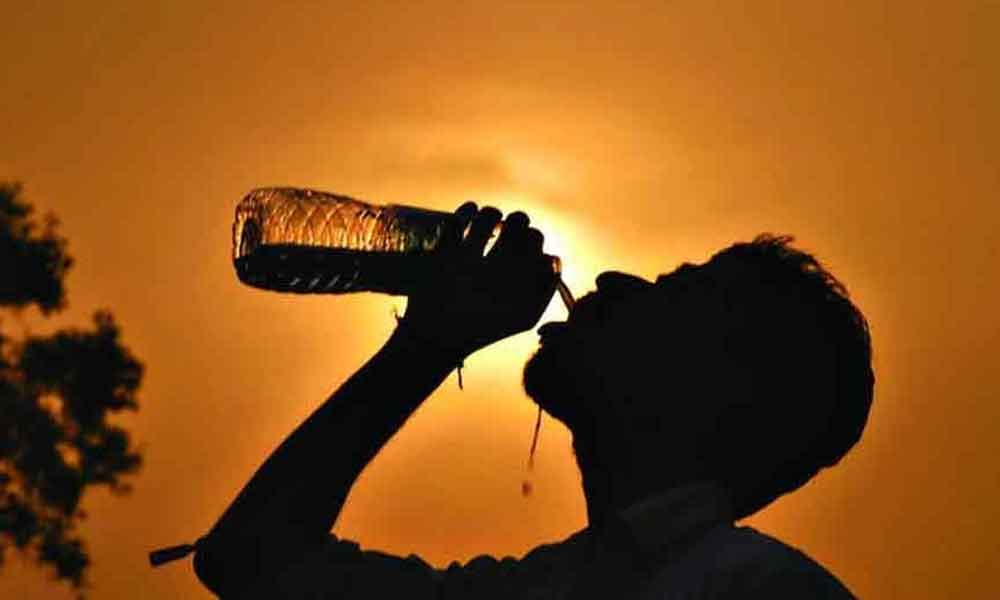
City likely to experience 40-41 deg C for a week
- Heatwave conditions likely on April 2 in Bhadradri-Kothagudem, Khammam, Suryapet, Nalgonda, Mahbubnagar &Nagarkurnool districts
- Highest max temp of 42.4 deg C recorded in Bhadrachalam. The other cities to sizzle in State were: Mahbubnagar 41.9, Nalgonda (41.5), Khammam &Ramagundam (41.4 each), Nizamabad 41.3
- Appreciable rise in temperatures from 2.1 to 4 deg C in some parts of State; they were markedly above normal by 5 deg C or more & appreciably above normal by 3.1 to 5 deg C in some other parts
Begumpet: Hyderabad will record the highest maximum temperature of 40 degrees Celsius, for the first time in this season, from April 2 to 5. According to the forecast given by the IMD bulletin, the city's day temperatures will go up by one degree to 41 on April 6 and 7. However, the outlook is partly cloudy sky.
According to the bulletin, the corresponding minimum temperatures in City from April 2 to 7 will be 23, 23, 23, 24,24 and 24 degrees Celsius respectively.
The bulletin warned that heat-wave conditions are very likely to occur on April 2 at isolated pockets in Bhadradri Kothagudem, Khammam, Suryapet, Nalgonda, MahbubnagarandNagarkurnool districts of Telangana.
It said the highest maximum temperature of 42.4 degrees Celsius was recorded in Bhadrachalam during the last 24 hours ending at 8.30 am on Thursday. The other cities to sizzle across the State were: Mahbubnagar (41.9 deg C), Adilabad (41.8), Nalgonda (41.5), Khammam & Ramagundam (41.4 each), Nizamabad 41.3.
According the bulletin, the other day temperatures were: Hyderabad 39.9, Hakimpet 39, Dundigal 38.9, Hanamkonda 38.5.
The temperatures rose appreciably ranging from 2.1 to 4 degree Celsius in some parts of the State.
They were markedly above normal by 5 deg C or more and were appreciably above normal by 3.1 to 5 deg C in some parts. They were above normal in many parts and normal in some others.
IMD issues dos and don'ts as heatwaves intensify
• Use a wet cloth / pour water on the victim's head.
• Give the person Oral Rehydration Solution to drink or lemon sarbat / torani or whatever is useful to rehydrate the body.
• Take the person immediately to the nearest health centre.
• If consistently experiencing high body temperature, throbbing headache, dizziness, weakness, nausea or disorientation , call an ambulance.
• Drink sufficient water - even if not thirsty
• Persons with epilepsy or heart, kidney or liver disease who are on fluid-restricted diets or have a problem with fluid retention should consult a doctor before increasing liquid intake.
• If you feel dizzy or ill, see a doctor immediately or ask somebody to take you to doctor immediately.
Use ORS (oral rehydration solution)
• Homemade drinks like lassi, torani (rice water), lemon water, buttermilk, coconut water to keep yourself hydrated.
• Wear lightweight, light-coloured, loose, cotton clothes.
• If outside, cover your head: Use a cloth, hat or umbrella. Use sunglasses to protect eyes & sunscreen to protect skin.
• Get trained in first aid.
• Take special care of the elderly, children, sick or overweight, as they are more likely to become victims of excessive heat.
• Stay indoors as much as possible.
• Traditional remedies, like onion salad and raw mango with salt and cumin, can prevent heat stroke.
• Use fans, damp clothing and take a bath in cold water frequently.
Avoid going out in the sun
• Avoid strenuous activities when outside in the afternoon.
• Do not go out barefoot.
• Avoid cooking during peak hours. Open doors and windows to ventilate cooking area adequately.
• Avoid alcohol, tea, coffee and carbonated soft drinks, which dehydrates the body.
• Avoid high-protein, salty, spicy and oily food. Do not eat stale food.
• Do not leave children or pets alone in parked vehicles.
• Avoid using incandescent light bulbs which may generate unnecessary heat, as can computers or appliances.


